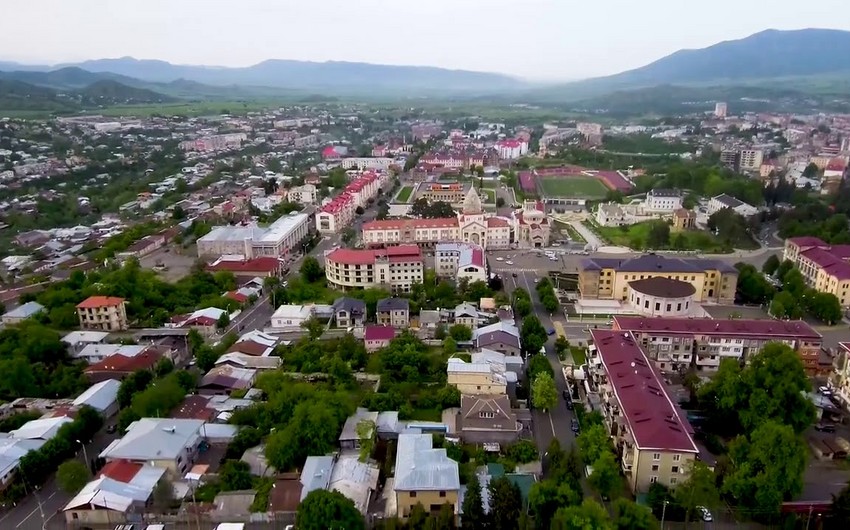The Armenian-backed separatist regime in Khankandi is politicizing the food issue. Meanwhile, all the accusations against Azerbaijan regarding the "blockade" of the Karabakh region are completely unsound, Caliber.az journalist Orkhan Amashov said in an interview with the BBC, Report informs.
He noted that the Azerbaijan Red Crescent Society is trying to deliver 40 tons of flour to the Armenians living in Karabakh. "However, this cargo is still stuck on the road and is still waiting for access to the territory controlled by the Russian peacekeeping contingent," Amashov said.
“On the basis of what we have seen from social media, on the basis of photos and videos, it is very clear that there are certain Armenians in Karabakh enjoying the life of plenty. But, of course, there are those who are not in the best circumstances. To be able to fix this issue, Azerbaijan has offered [to use] Aghdam-Khankandi road repeatedly,” Amashov said, referring to Baku’s proposal to use the mentioned route for humanitarian supplies to Karabakh.
The political observer also stressed that the Lachin road is currently open and operates in a limited mode for the transfer of medical assistance to those in need and for the delivery of medicines.
“We have to understand why Lachin road is not suitable for the purpose of transportation of large humanitarian convoys. Because there are massive security risks there," Amashov said.
During the interview, the expert recalled that on June 15 there was a shooting incident, and in early July, the Armenians of Karabakh tried to use cars belonging to the International Committee of the Red Cross (ICRC) for unauthorized transportation of goods to Karabakh.
On July 15, an agreement was reached that both the Lachin road and the Aghdam-Khankendi road should operate in accordance with the principle of complementarity, he said, noting that the Armenian side then abandoned this.
Amashov also touched upon the issue of establishing the Lachin BCP by Azerbaijan. According to him, the main reason that Azerbaijan established a border checkpoint was the illegal use of the Lachin road.
Until that moment, the Lachin road was used by the Armenians to transport ammunition and weapons, he explained.
Another BBC interviewee was Rodney Dixon, a leading lawyer and expert in international law, counsel at the law firm Temple Garden Chambers.
He noted that the Azerbaijani government asked him to see the anti-Azerbaijani report of the ex-prosecutor of the International Criminal Court Luis Moreno Ocampo and the accusations against Azerbaijan made in it. Having studied the case on the basis of the law and all publicly available facts, he concluded that Moreno's accusations of allegedly committing "genocide" against the Armenian population of Karabakh are groundless and have no evidence.
"It doesn't amount to genocide, because Mr. Ocampo hasn't identified any evidence to show that," he said, noting that the Azerbaijani government is offering food to the people of Karabakh via the Aghdam road, a route that has been confirmed for use by the ICRC and the EU.
And in that case, where the food is clearly available, it is hard to equal this with the intention to "destroy" the Armenians of Karabakh, the lawyer said.
Dixon noted that food is delivered along the Aghdam road by independent organizations such as the ICRC and the Red Crescent. In turn, when the Red Crescent delivered food along this route, the Armenians of Karabakh did not let it in. The Aghdam road can be used by international organizations, along with the Lachin road.
"So my point is that these are important evidence that a proper lawyer should take into account before making an allegation that there is an intention to physically destroy the civilian population. This is a very serious allegation to make, and you cannot do that, when there are routes available for food to get in, it's quite contradictory," he said.


 https://static.report.az/photo/ee2c1ab0-7ec2-3759-bf74-495d5dcd99d1.jpg
https://static.report.az/photo/ee2c1ab0-7ec2-3759-bf74-495d5dcd99d1.jpg

